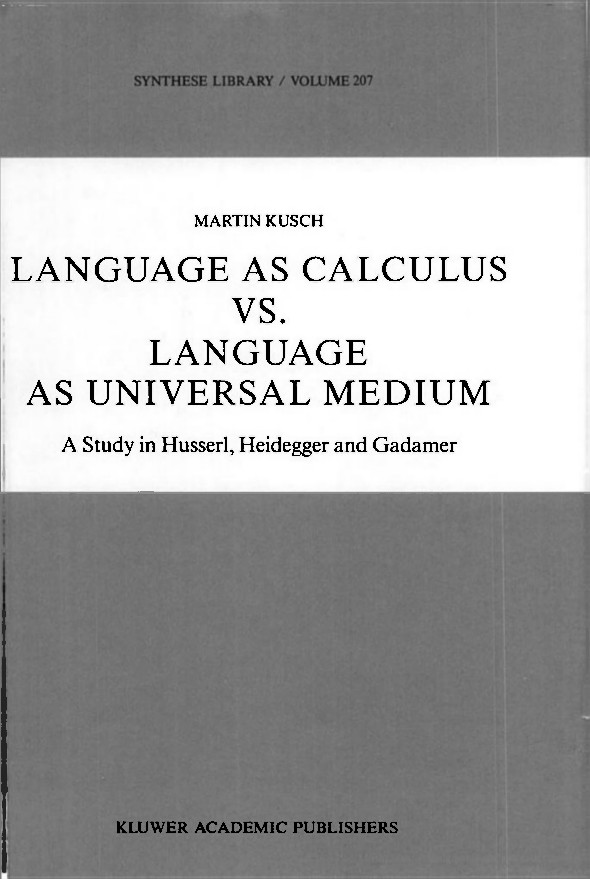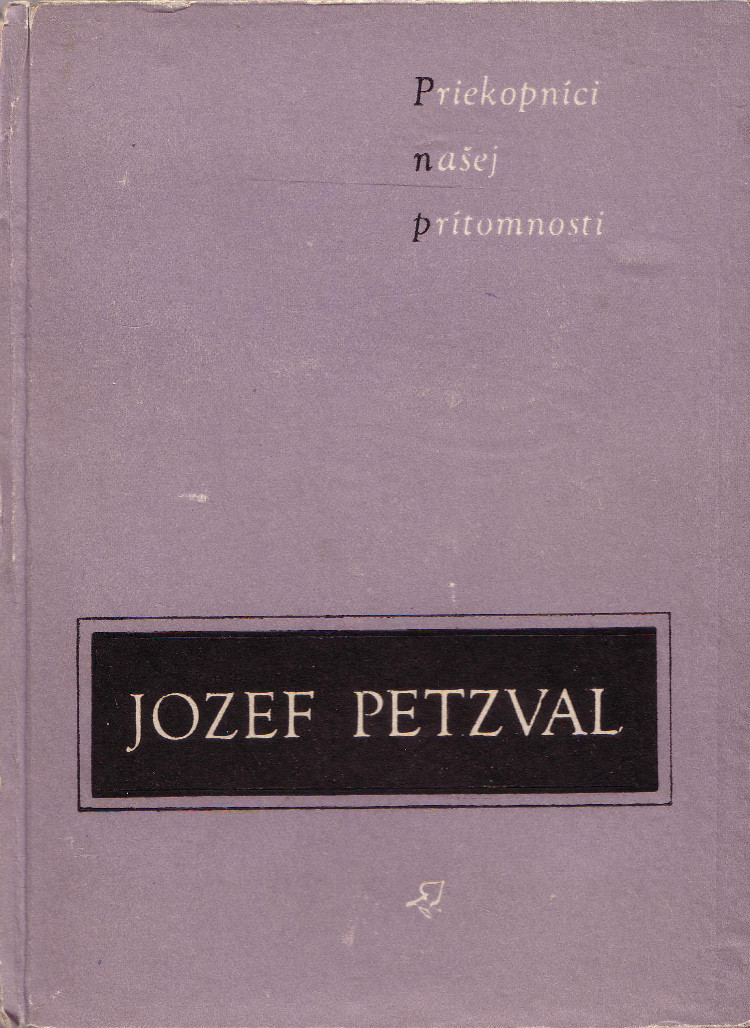Martin Kusch: Language as Calculus vs. Language as Universal Medium: A Study in Husserl, Heidegger and Gadamer (1989)
Filed under book | Tags: · hermeneutics, language, mathematics, phenomenology, philosophy

The book applies a novel interpretational framework in philosophy of language to the study of Husserl, Heidegger and Gadamer, emphasizing the fundamental opposition in Husserl’s and Heidegger’s views concerning the relations between language and the world. The author shows how Husserl’s idea of language as a reinterpretable sign-system informs his whole philosophical project from the early work on the philosophy of mathematics to the late studies on the life-world.
The book also explains Heidegger’s central reasons for rejecting Husserl’s conception of language, the central tenets of Heidegger’s early as well as his late “thought” being interpreted as so many corollaries of this rejection. The book concludes with a discussion of Gadamer’s hermeneutics which is analyzed as an attempt to avoid the extremities of both Husserl and Heidegger. The study also elaborates on similarities and differences between these thinkers and classicists in the analytical tradition such as Frege and Wittgenstein.
Publisher Kluwer Academic Publishers, Dordrecht / Boston / London, 1989
Synthese Library, Volume 207
ISBN 0792303334, 9780792303336
362 pages
Dorothy Stein: Ada: A Life and a Legacy (1987)
Filed under book | Tags: · biography, computing, electricity, history of computing, history of science, mathematics, science, technology

In this engrossing biography, Dorothy Stein strips away the many layers of myth surrounding Ada Lovelace’s reputation as the inventor of the science of computer programming to reveal a story far more dramatic and fascinating than previous accounts have indicated. Working with original sources, Stein clears up a number of puzzles and misinterpretations of Ada’s life and activities.
Augusta Ada Byron, Countess of Lovelace, was the only daughter of the poet Lord Byron and the close friend and associate of a number of the foremost scientific, literary, and artistic figures of the early Victorian period. She enjoys a growing reputation today for her report on Charles Babbage’s Analytical Engine—considered to be the first computer. Yet Stein shows how the often self-serving Babbage conspired to create the legend, using the Countess to promote his projects and make exaggerated claims for his engine. By placing Lady Lovelace’s report in the social and cultural context in which it was written, she finds that, far from being a clear and masterly exposition of the structure and logic of the computer, it was a rather mystical tract that dwelt on the inventor’s outdated philosophy of mathematics, and his mechanistic view of theology and the workings of capitalist economics.
Ada’s own life is vividly told, often in her own words, as Stein weaves into her narrative excerpts from letters, memoirs, and little-known documents to create an account that is at once black comedy, detective story, psychological drama, and scientific explanation. She examines the barriers and opportunities that Ada faced as she strove to develop her ambitions and search for truths that would free her of that shadow of her mysterious father and her overbearing and manipulative mother.
Stein reveals a turbulent and complex woman who tries to run away, who marries and bears three children, attempts to bury herself in the study of mathematics, and to find herself in a career in music or in writing. Ada corresponds and associates with men as diverse as Dickens, Chadwick, Quetelet, and Wheatstone. She sickens and attempts to find the cause of her malady by exploring the fringes of several sciences. Her interest in the use of electricity to treat nervous disorders involves her in the controversies over mesmerism and phrenology, and turns her from Babbage to Faraday and to Andrew Crosse, the “electrician” whose work served as the model for Frankenstein. With Ada, Stein examines the roots of the fear, fascination, and mystic awe with which we still regard the impact of high technology upon ordinary life.
Publisher MIT Press, 1987
History of Computing Series
ISBN 0262691167, 9780262691161
321 pages
Ivan Rumanovský: Jozef Petzval: Život a dielo (1957) [Slovak]
Filed under book | Tags: · biography, mathematics, photography, physics

Biografia matematika, fyzika a vynálezcu zo Spišskej Belej od inžiniera a historika filmu Ivana Rumanovského. Jozef Petzval sa preslávil ako viedenský profesor matematiky, ktorý výrazne zasiahol do dejín optiky a fotografie.
Publisher Osveta, Martin, 1957
Priekopníci našej prítomnosti series, Vol. 7
61 pages
PDF (no OCR)
Comment (0)
